“Sustainability isn’t about pointing fingers – it’s about working together”
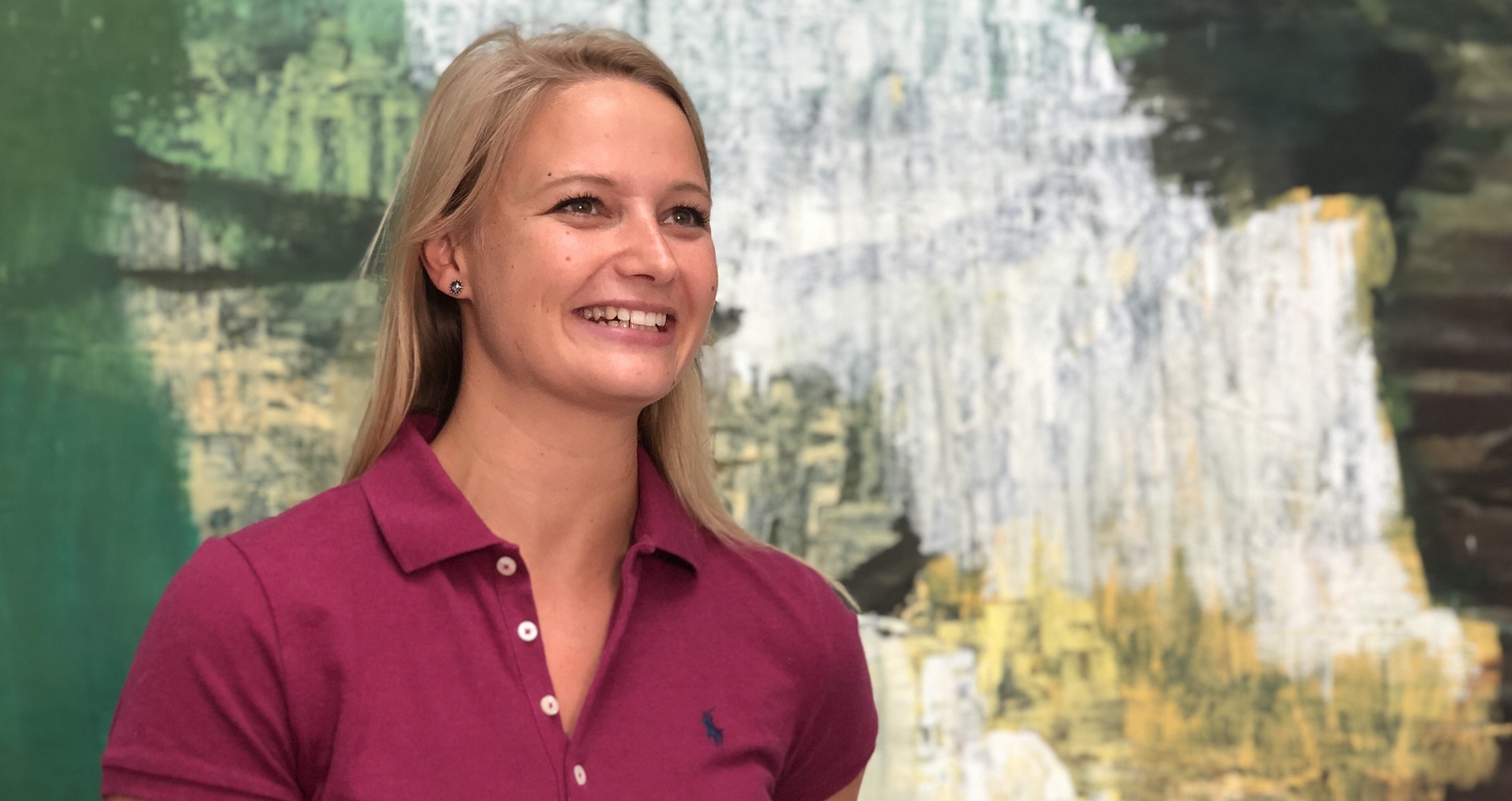
Louise Thomsen, Centre Manager at CBS Sustainability, has spent three years to push CBS in a greener direction. Now, she says goodbye. (Photo: Anne M. Lykkegaard)
It’s hard to mention sustainable initiatives at CBS that Centre Manager Louise Thomsen hasn’t been involved with in one way or another. Since 2016, she has done her part to push CBS in a more sustainable direction. And it hasn’t always been easy. Now, she is saying goodbye to CBS with some words of advice on how the university can become even more sustainable.
Whenever I am in doubt about something related to sustainability at CBS, I know who I’m gonna call. Louise Thomsen. And other people do the same – apparently.
“Not long ago, a student emailed me and asked why graduate students had to print out their theses in three examples when handing them in. He obviously thought it was a waste of paper and wanted to know if it could be changed. I get emails and calls like this even though these ideas don’t come under my area of responsibility,” says Louise Thomsen, Centre Manager for CBS Sustainability.
And it’s not that surprising that people are either directed to Louise Thomsen or stumble upon her name themselves in their search.
What I really like about working with CSR and sustainability is that it’s about bringing people together
Louise Thomsen
Since 2016, Louise Thomsen has worked with sustainability in different positions at CBS, currently as the Centre Manager for CBS Sustainability. She has been part of creating a vegetarian-by-default policy at the Department of Management, Society and Communication, kick started the establishment of an SDG task force, coordinated the first sustainable conference at CBS, created a sustainable event guide, and pushed for making CBS a member of the UN Global Compact, to name just a few of her achievements.
“In order to solve some of the challenges we are facing, we need to think smarter and adjust ourselves to a new reality. We can only do so by working together. We have to break away from the way we usually do things, and you can only accomplish that by igniting people’s commitment,” she says.
And igniting people’s commitment towards more sustainable options has been both a walk in the park and an uphill struggle at CBS.
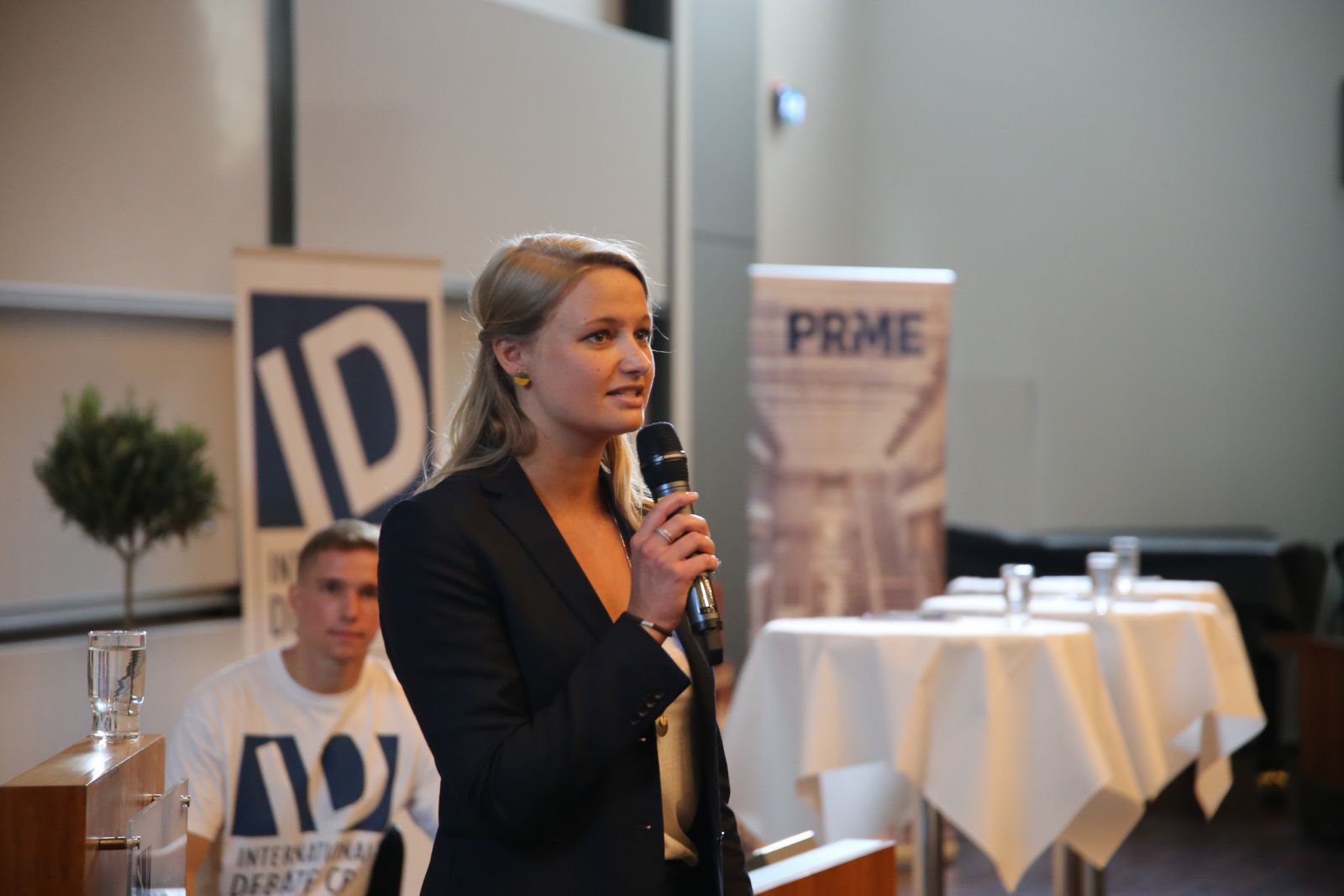
“I’ve been surprised by how difficult it sometimes is to sell an idea that has loads of potential. I, personally, can only see advantages in setting ambitious climate goals and organizing initiatives and activities that can help us reach the goals. But in the end, it’s all about igniting commitment. Companies are adopting a sustainable agenda, and we have to prepare our graduates for that,” she says and adds:
“Having said that, I’ve also been surprised by how many people at CBS are working with sustainability in one way or another. The people I have talked to and worked with are highly engaged. It is the engagement and openness from colleagues and students that have surprised me and motivated me the most”
Louise Thomsen will soon be off duty from CBS, as she will start working for a young sustainability consultancy firm called Nordic Sustainability from October. So, CBS WIRE met up with her for a chat about why she cares so much about sustainability, what sustainability is to her, how she views the current climate crisis, and how she thinks CBS can become a sustainable frontrunner.
Sustainability is not a competition
Louise Thomsen’s interest in sustainability has several points of departure. She grew up on a farm surrounded by animals and fresh air, and felt most at home in the great outdoors. During her studies at CBS, she completed a summer school program in China that focused on renewable energy, and when she pursued her master’s degree at CBS, it was with corporate social responsibility at the core of her studies.
“It was during an internship at the Danish Chamber of Commerce that I found my vocation. I was hired as the first CSR intern, and I felt so inspired,” she says about her time as an intern.
After her studies, she was hired by the Danish Chamber of Commerce (Dansk Erhverv) to continue her work. For example, she developed the first ever CSR strategy for the chemistry and life science association under the Danish Chamber of Commerce. And in 2016, she returned to CBS to work as a research assistant for Professor Jeremy Moon and for PRME. And now, she is the manager of the CBS Sustainability Center.
“What I really like about working with CSR and sustainability is that it’s about bringing people together. It’s not about pointing fingers. Sustainability is not a competition. It’s about working together and constantly challenging each other on how we can improve our practices with the knowledge we have at the moment,” she says.
Making a choice
Sustainability is a word that has many meanings. It can refer to the environment, but it can also be about sustaining a good working environment so that employees are healthier and enjoy going to work. But what is sustainability to Louise Thomsen?
I’m not some important decision-maker who can actually make the big decisions that really matter, but I can create ripples
Louise Thomsen
“To me, sustainability is about making a choice. Whenever you can make a choice, you opt for something and opt out of something else. And here, I try to be curious. Are there other ways of doing things? And then I have realized that nothing is 100 percent sustainable, but I do my best to choose the most sustainable alternative we have available, knowing that it might not be the best choice, but it’s the best choice I can make for the moment. Especially in a working context it’s about not feeling too busy to challenge our habits,” she says.
She mentions that she always cycles to work, uses a washing egg that contains no soap, and never tumble dries her clothes. But is there anything that is difficult in terms of living a sustainable lifestyle?
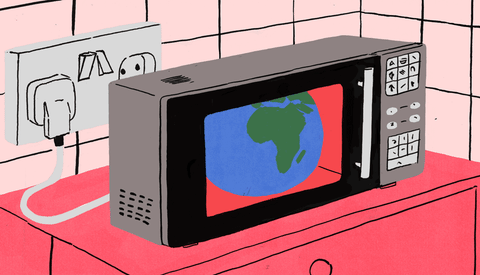
“Traveling. It’s my biggest challenge. I try to go by bus or train whenever I can, and I’m actually planning an Interrail trip for my coming vacation, but it’s hard to avoid flying,” she says and adds:
“I have two bigger decisions to make at the moment, choosing a pension firm for my own pension after I leave CBS and choosing and electricity firm for my new home. And I will do a lot to make those choices as sustainable as possible.”
Climate pessimist or optimist?
When scrolling through news feeds, it’s easy to get depressed on behalf of Mother Earth. The Amazon rainforest is on fire, the poles are melting at a ridiculous speed, and airline companies are reporting record sales. How does Louise Thomsen, as the sustainable frontrunner she is, view the climate crisis? And does she ever get depressed about the current state of affairs?
“I’m a born optimist, but of course, in my daily work, I sometimes doubt whether it matters. Whether it actually pushes us in the right direction. And whether we will ever make the U-turn in time. I’m not some important decision maker who can actually make the big decisions that really matter, but I can create ripples,” she says and continues:
“I can engage and inspire people in my community to act and work more sustainably. And that’ll spread. For example, I made a sustainable event guide for the staff at CBS, but DGI, the sports association, just picked it up and wants to use it. And that makes me very positive about the future.”
Establish a green office
When Louise Thomsen began her job at CBS in 2016, the UN’s Sustainable Development Goals, SDGs, had only existed for about a year. But flashing forward to 2019, they have had a tremendous impact on how we talk about sustainability, explains Louise Thomsen. Also at CBS.
“The SDGs have definitely pushed CBS. They have pushed everyone. Companies, organizations and foundations have picked up on the SDGs. Researchers have started to take these matters into account and consider how their research can contribute to society,” she says and continues:
“And then we have created a sustainability platform at CBS, CBS Sustainability. We have created a network of both internal and external people who work with these matters.”
But CBS could do even better, argues Louise Thomsen, giving CBS some parting words of advice.
“Universities need to constantly look into how they can contribute to developing the skills that society needs for it to develop in the direction we want. The question we need to ask in a university context is: What tools do we provide to our students to solve the most pressing challenges? which will also be the direction that the job market will take,” she says.
And then Louise Thomsen has had another idea, linked to the student who contacted her about the possibility of changing the procedure for handing in master’s theses.
“There are so many good initiatives, projects, research and education happening at CBS, but to fully unlock the potential for CBS to become a sustainable university, we desperately need a platform or an office where students and staff can take their ideas for making CBS even more sustainable. I think a lot of ideas and initiatives are lost because people don’t know who to turn to with their ideas, and the result is that knowledge is lost and we spend time asking the same questions and trying the same initiatives over and over again. That’s a shame.”



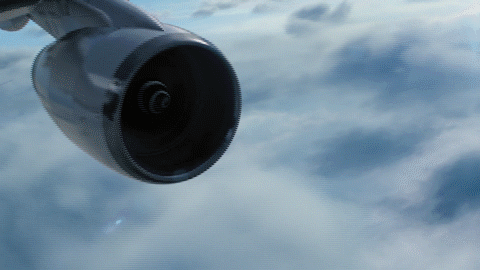
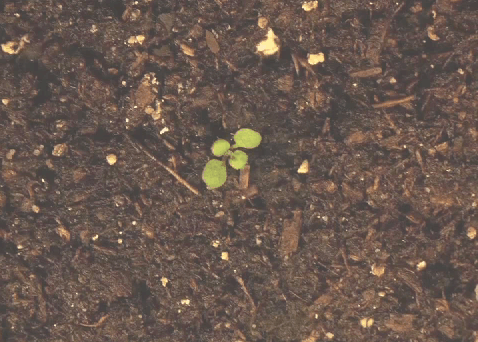
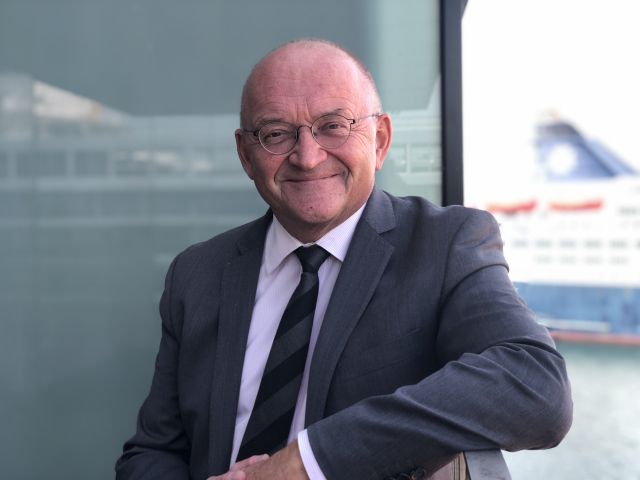
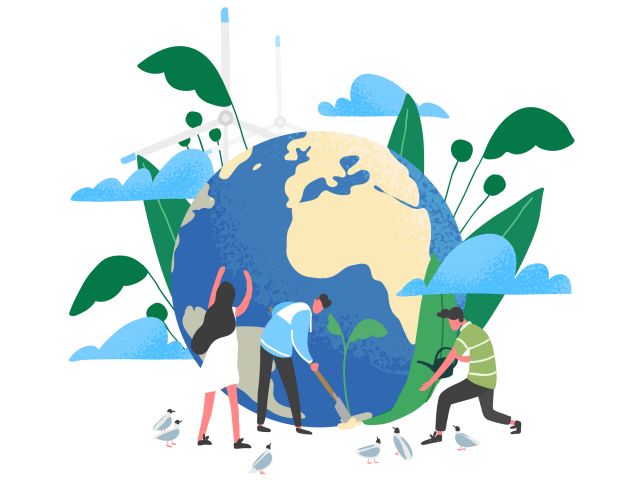
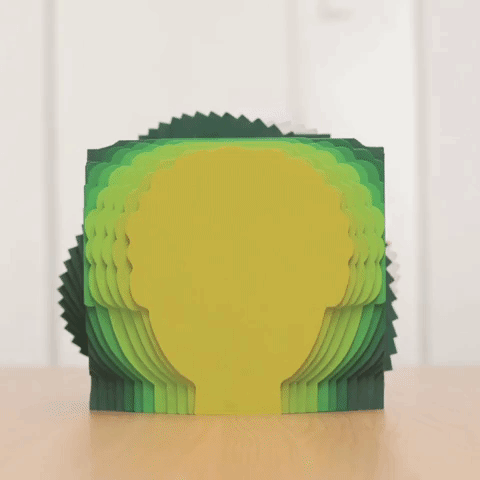
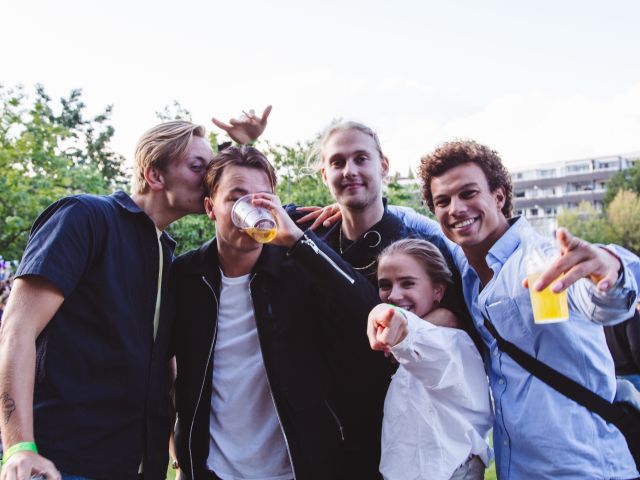





























































































































Comments